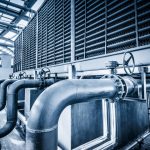
How to Choose the Right HVAC System for Your Industrial Facility
October 8, 2024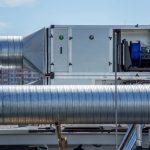
Common HVAC Issues in Large-Scale Industrial Settings and How to Prevent Them
October 22, 2024Energy efficiency is a key priority for military bases and complexes, not only to reduce operational costs but also to enhance national security and promote environmental sustainability. Given the scale and complexity of these facilities, the HVAC (heating, ventilation, and air conditioning) systems must be carefully designed to deliver reliable climate control while minimizing energy consumption. Military bases often have diverse needs, from office spaces and barracks to warehouses and training centers, each requiring unique HVAC solutions. In this blog, we’ll explore energy-efficient HVAC options that can make a substantial impact on both energy savings and the overall functionality of military facilities.
1. The Importance of Energy Efficiency for Military Operations
Energy efficiency on military bases is not just about cost savings; it’s a strategic imperative. By reducing energy dependence, we enhance operational readiness and decrease the vulnerability of energy supply lines. As military facility managers, you play a crucial role in this strategic mission.
- Reduced Operating Costs: Military installations consume vast amounts of energy, and HVAC systems are often a significant contributor to energy use. Implementing energy-efficient solutions can lead to substantial savings, freeing up resources for other mission-critical activities and opening up new possibilities for your facilities.
- Enhanced Energy Security: By relying less on external energy sources, military bases reduce their exposure to potential disruptions. Energy-efficient HVAC systems contribute to a more self-sufficient and resilient infrastructure.
- Environmental Impact: The Department of Defense (DoD) has made commitments to reducing greenhouse gas emissions. Energy-efficient HVAC systems help military bases meet sustainability goals and reduce their carbon footprint.
- Improved Indoor Air Quality and Comfort: An efficient HVAC system not only conserves energy but also enhances the indoor environment, which is crucial for the health and productivity of service members and staff.
2. High-Efficiency HVAC Equipment and Upgrades
Upgrading to high-efficiency HVAC equipment is a fundamental step toward achieving energy efficiency on military bases. This includes advanced systems that deliver superior performance while consuming less energy.
- Variable Refrigerant Flow (VRF) Systems: VRF systems are highly efficient and provide precise temperature control in multiple zones. This technology allows different areas of a facility to be heated or cooled simultaneously, depending on the needs of the occupants. VRF systems are ideal for buildings with varying climate requirements, such as administrative offices, barracks, and medical centers.
- High-Efficiency Heat Pumps: Heat pumps are an excellent option for moderate climates, as they provide both heating and cooling. By transferring heat rather than generating it, heat pumps use significantly less energy than traditional heating methods. Geothermal heat pumps, in particular, offer impressive energy savings by using the earth’s stable temperature to regulate indoor conditions.
- Energy Recovery Ventilators (ERVs): ERVs are devices that capture energy from the exhaust air and use it to pre-condition incoming fresh air. This process reduces the workload on the HVAC system and improves overall energy efficiency, making ERVs a valuable addition to military facilities that require constant ventilation.
- Chiller Upgrades: In facilities that require extensive cooling, upgrading to high-efficiency chillers can lead to considerable energy savings. Modern chillers are designed to operate efficiently even under partial load conditions, which is common in large, variable-use facilities.
3. Smart HVAC Controls and Automation
Integrating smart controls and automation into HVAC systems can revolutionize energy management on military bases. These technologies enable precise monitoring and control of HVAC operations, ensuring that energy is used efficiently.
- Building Automation Systems (BAS): A BAS integrates all HVAC components and other building systems into a centralized control platform. It monitors temperature, humidity, and occupancy levels to optimize energy use. For military complexes with multiple buildings, a BAS can provide comprehensive energy management, allowing facility managers to monitor and adjust settings from a single interface.
- Smart Thermostats: Smart thermostats learn usage patterns and automatically adjust temperatures based on occupancy. They can be programmed to reduce heating or cooling during non-peak hours, ensuring energy isn’t wasted. Additionally, remote access features allow facility managers to make adjustments from anywhere, enhancing convenience and efficiency.
- Demand Response Programs: Military bases can participate in demand response programs, where HVAC systems are adjusted during peak energy demand periods to reduce strain on the power grid. This not only lowers energy costs but also contributes to grid stability.
- Data Analytics and Predictive Maintenance: Smart HVAC systems collect data that can be analyzed to predict maintenance needs and optimize performance. For example, sensors can detect when a component is operating inefficiently, triggering maintenance before a breakdown occurs. This proactive approach extends equipment lifespan and ensures consistent performance.
4. Zoning and Temperature Control
Given the diverse nature of activities on military bases, zoning, and precise temperature control are crucial for energy efficiency. Different buildings and areas often have distinct climate requirements, and zoning allows for customized temperature settings.
- Zone-Based HVAC Systems: With zoning, each area of a facility can be set to a different temperature based on its use and occupancy. For example, office spaces may require more cooling during the day, while storage areas may need minimal climate control. Zoning reduces energy waste by heating or cooling only the areas in use.
- Occupancy Sensors: Occupancy sensors detect when a room is empty and adjust the HVAC system accordingly. This is particularly useful in training centers, conference rooms, or dormitories, where usage patterns can be unpredictable.
- Airflow Management: Properly managing airflow in large facilities ensures that air is distributed efficiently. Advanced ventilation systems can direct airflow where it’s needed most, improving comfort while conserving energy. Using technologies like variable air volume (VAV) systems helps achieve this balance.
5. Renewable Energy Integration and Sustainability
Integrating renewable energy sources with HVAC systems can further enhance energy efficiency and align with the military’s sustainability initiatives. Renewable energy reduces dependency on non-renewable resources and provides a long-term, cost-effective solution.
- Solar-Powered HVAC Systems: Solar energy can be used to power HVAC systems, especially in regions with abundant sunlight. Photovoltaic panels can supply energy for heating, cooling, and ventilation, significantly reducing energy costs.
- Geothermal Systems: Geothermal heat pumps are one of the most efficient HVAC options, using the earth’s consistent underground temperature to provide heating and cooling. These systems are particularly effective for large facilities and can result in significant energy savings over time.
- Combined Heat and Power (CHP) Systems: CHP systems generate electricity and capture the heat produced in the process to use for heating or cooling. This approach maximizes energy efficiency and is well-suited for military installations with high energy demands.
- Sustainability Initiatives: As military facility managers, you have the power to implement sustainability initiatives, such as using eco-friendly refrigerants and improving insulation in buildings to reduce energy loss. These practices not only support environmental goals but also enhance the performance of HVAC systems, and your commitment to these initiatives is crucial.
Energy-efficient HVAC solutions are essential for effectively operating military bases and complexes. By investing in high-efficiency equipment, smart controls, and renewable energy integration, military installations can achieve substantial energy savings, improve energy security, and create a more comfortable environment for personnel. The benefits of energy-efficient HVAC systems extend beyond cost savings, contributing to the military’s sustainability and operational readiness mission. As technology evolves, military facilities can adopt innovative HVAC solutions that set the standard for energy efficiency and environmental stewardship.
Calcasieu Mechanical Contractors specializes in delivering tailored HVAC solutions that meet the unique demands of military installations, ensuring both efficiency and reliability. Trust us to enhance your base’s performance with cutting-edge, eco-friendly HVAC technologies.
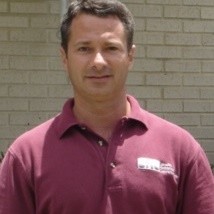
Hailing from the picturesque town of Lake Charles, Louisiana, Jim Blanchard stands as an exemplar in commercial HVAC installation and services. As President of Calcasieu Mechanical, he has leveraged his deep industry knowledge and innovative strategies to establish the company as a leading regional service provider. Under Jim’s leadership, Calcasieu Mechanical has expanded its portfolio of high-quality services and earned the trust and respect of businesses throughout Louisiana. The company’s commitment to excellence, reflected in its endeavors, stems from Jim’s dedication to ensuring every project meets and exceeds client expectations.
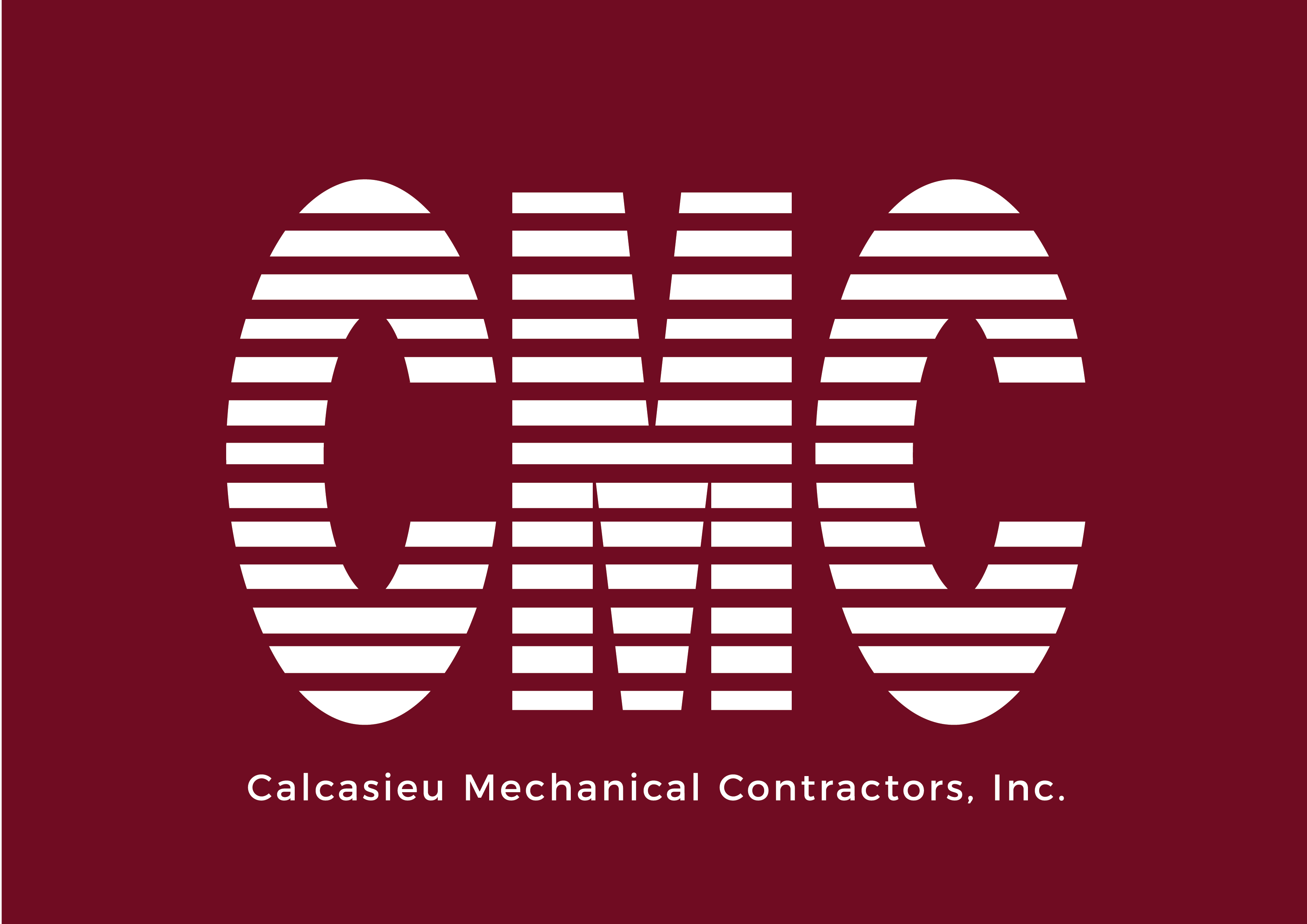
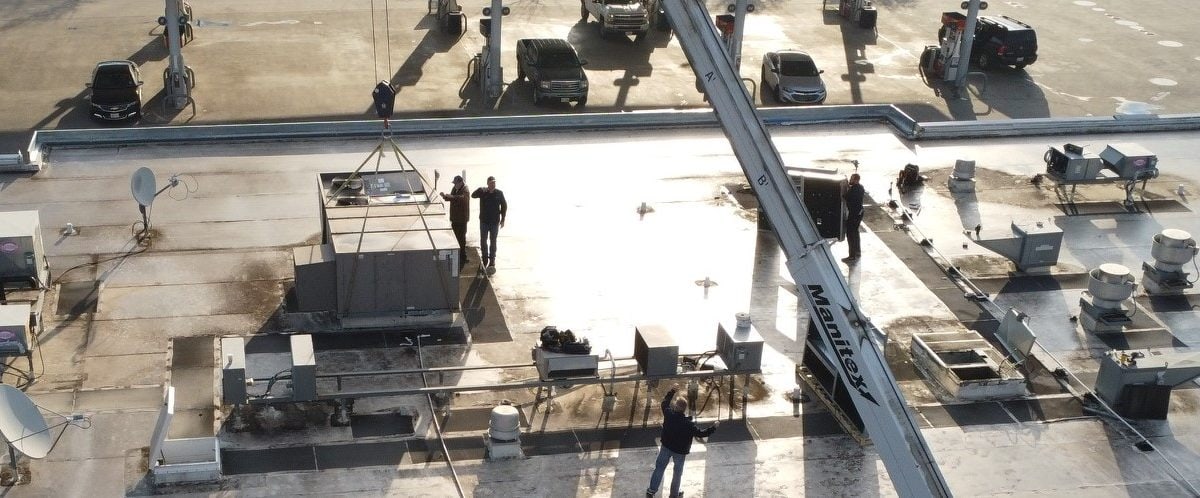
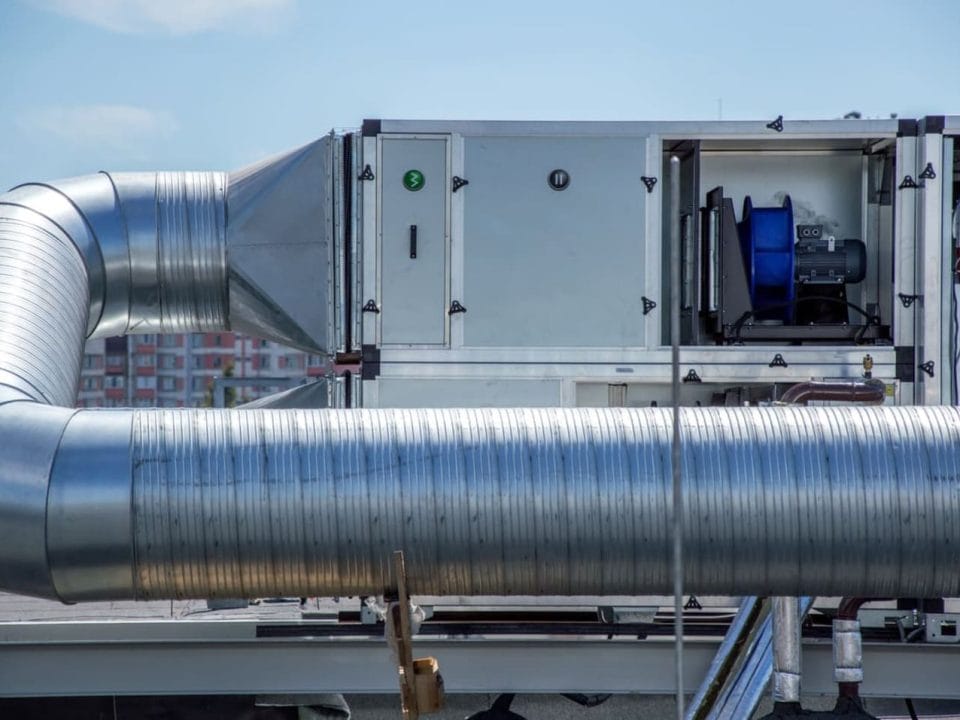
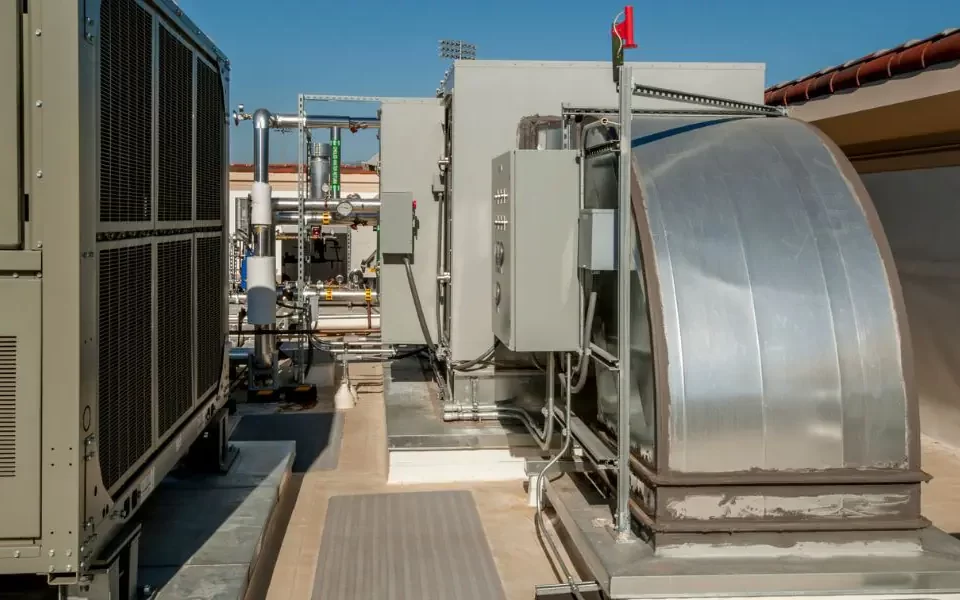
1 Comment
I hope this email finds you well.
On behalf of Govcrest Inc., we are reaching out to request a formal quotation for HVAC repair and installation services at the U.S. Coast Guard Station Channel Islands Harbor, located in Oxnard, CA. Please find the detailed requirements and specifications for the project below:
Project Scope:
Location: USCG Station Channel Islands Harbor, 4201 Victoria Avenue, Oxnard, CA 93035-4397
Building Areas for Work:
Main Station Building: 8,672 sq. ft.
Maintenance Shop: 2,358 sq. ft.
South Building: 1,336 sq. ft.
Work Requirements:
HVAC System Replacement: Replace failed HVAC systems and install new air conditioning units in the above-mentioned buildings.
Specific Tasks:
Main Station Building: Add air conditioning to the existing forced air furnace systems.
Maintenance Shop: Replace the rooftop HVAC unit (5-ton package) and a 150,000 BTU/hr natural gas forced air furnace.
South Building: Install split units capable of heating and cooling 450 sq. ft. (office space) and 840 sq. ft. (workshop space).
Waste Disposal: Remove and dispose of all old HVAC units and related materials in compliance with industry standards and environmental regulations.
Performance Period: The project must be completed within 90 calendar days from the award date.
Additional Information:
Contract Type: Firm Fixed Price
The contractor must provide all necessary labor, materials, and equipment.
All work must adhere to applicable industry standards and regulations.
Contractors should ensure minimal disruption to Coast Guard operations during the project.
Delivery Address:
USCG Station Channel Islands Harbor
4201 Victoria Avenue, Oxnard, CA 93035-4397
Payment Terms:
Net 30 days
We kindly request that you provide us with a detailed quote based on the above specifications. Please include:
Breakdown of costs, including labor, materials, and equipment
Lead times for the delivery and installation of HVAC systems
Warranty information and any terms and conditions associated with your proposal
Please do not hesitate to contact us if you require any further information or clarification on the project requirements.
We look forward to receiving your quotation by 18 September.
Thank you for your time and consideration. We value your partnership and hope to work with you on this project.